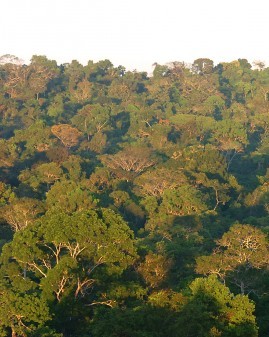Brazil’s Role in the Biodiversity Conservation Agenda

Brazil’s contributions and strategies to the sustainable use of biological diversity will be discussed in the panel The International Agenda of Biodiversity Conservation and the Role of Brazil, which will take place on June 11, at 10 am, in the auditorium Prof. Oswaldo Fadigas Fontes Torres of USP’s Superintendence of Technology and Information (STI).
In particular, the event will discuss the Intergovernmental Platform on Biodiversity and Ecosystem Services (IPBES) and the challenges and opportunities of the agenda of the Convention on Biological Diversity (CBD) in the context of sustainable development and climate change. Both institutions are associated with the United Nations.
The conference will be opened by José Eduardo Krieger, provost for Research of the University of São Paulo, and Antonio Mauro Saraiva, associate dean of Research and coordinator of the Research Center on Biodiversity and Computing (BIOCOMP). The panelists will be Braulio Ferreira de Souza Dias, executive secretary of the CBD, and Carlos Alfredo Joly, member of the Multidisciplinary Experts Panel (MEP) of IPBES and coordinator of the Biota-FAPESP project.
After the expositions by Dias and Joly, there will be a debate on the subject with José Goldemberg, former president of the University of São Paulo and professor emeritus at USP’s Institute for Energy and Environment (IEE); Jacques Marcovitch, former president of USP, former director of the IEA and professor at USP’s School of Economics, Administration and Accounting (FEA); and José Pedro de Oliveira Costa, professor at USP’s School of Architecture and Urbanism (FAU) and advisor to São Paulo state’s Department of the Environment.
Among the issues to be addressed are what is expected of Brazil and the university with regard to biodiversity conservation and the development of public policies for the area.
The panel is an initiative of the IEA in partnership with the Dean’s Office of Research, BIOCOMP and USP’s Polytechnical School (POLI).
Photo: Cecília Bastos/Jornal da USP
